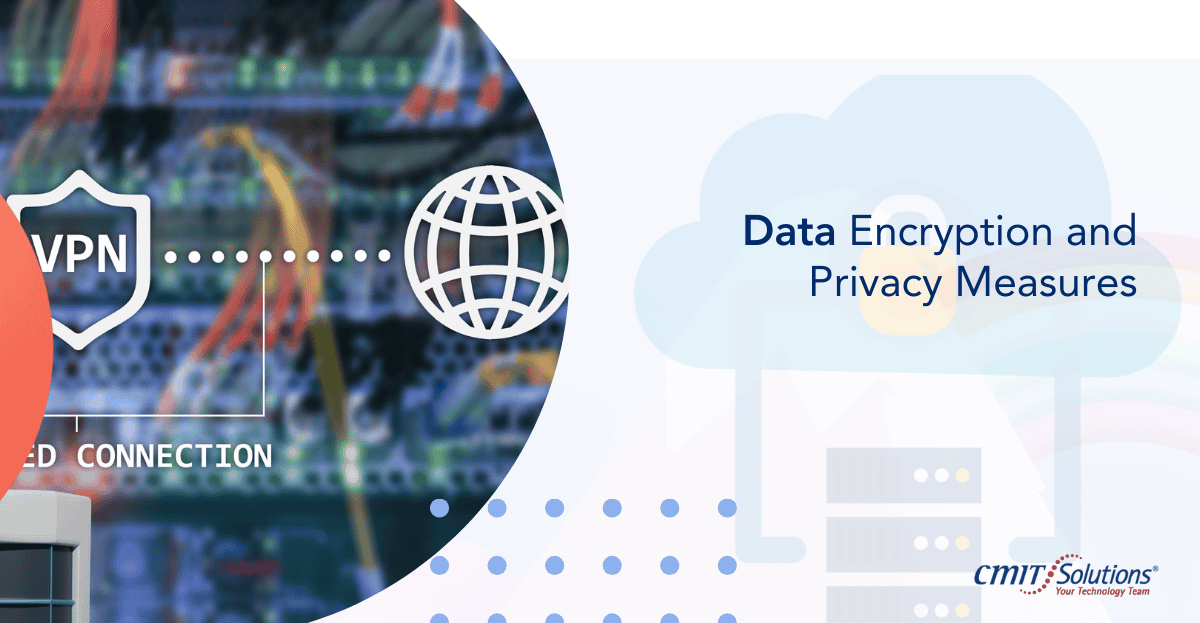In today’s dynamic business landscape, organizations are increasingly turning to hybrid cloud solutions to meet their IT needs. With the ever-growing importance of data security and the demand for flexibility in operations, finding the right balance between these two aspects becomes paramount. In this comprehensive blog post by CMIT Charleston, we will explore the intricacies of hybrid cloud environments and how they offer a delicate equilibrium between security and flexibility.
Understanding Hybrid Cloud Environments
At the core of hybrid cloud solutions lies the integration of on-premises infrastructure with public and private cloud services. CMIT Charleston defines the components of hybrid clouds, distinguishing them from purely public or private models. By understanding the basics, readers can appreciate the nuanced approach required for balancing security and flexibility effectively.
Importance of Security in Hybrid Clouds
Security forms the foundation of any IT infrastructure, and hybrid clouds are no exception. CMIT Charleston emphasizes the criticality of security measures in hybrid environments, considering the unique challenges posed by the combination of on-premises and cloud-based resources. Threats and vulnerabilities specific to hybrid setups are highlighted to underscore the importance of robust security protocols.
Flexibility: The Key Advantage of Hybrid Clouds
Organizations opt for hybrid cloud solutions primarily for their unparalleled flexibility. CMIT Charleston elaborates on the advantages of flexibility in terms of scalability, resource optimization, and adaptability to evolving business needs. Real-world examples showcase how hybrid clouds empower businesses to respond swiftly to market demands while maintaining operational efficiency.
Compliance Considerations
In regulated industries, compliance requirements dictate stringent standards for data handling and security. CMIT Charleston explores how hybrid cloud solutions can help organizations navigate these complex compliance landscapes while ensuring both security and flexibility. Case studies from regulated sectors exemplify best practices in achieving regulatory compliance within hybrid environments.
Data Encryption and Privacy Measures
Securing sensitive data is imperative in hybrid cloud environments. CMIT Charleston delves into encryption techniques and privacy measures that organizations can implement to safeguard their data across hybrid infrastructures. Real-world scenarios underscore the critical role of encryption in preserving data integrity and confidentiality.
Identity and Access Management (IAM)
Controlling access to hybrid cloud resources is paramount for maintaining security. CMIT Charleston discusses IAM strategies such as role-based access control (RBAC) and multi-factor authentication (MFA) to bolster security without impeding flexibility. Insights into identity federation highlight the seamless integration of identity management across hybrid infrastructures.
Risk Assessment and Mitigation
Identifying and mitigating risks is an ongoing endeavor in hybrid cloud deployments. CMIT Charleston outlines proactive measures for conducting risk assessments, identifying vulnerabilities, and implementing mitigation strategies. Emphasis is placed on preemptive actions to address potential security and operational risks effectively.
Network Security in Hybrid Environments
Securing network communications is critical for safeguarding data transmission within hybrid cloud architectures. CMIT Charleston explores technologies like virtual private networks (VPNs) and firewalls to fortify network security. The integration of intrusion detection systems (IDS) enhances threat detection capabilities across on-premises and cloud environments.
Disaster Recovery and Business Continuity
Hybrid cloud setups offer robust solutions for disaster recovery (DR) and business continuity (BC) planning. CMIT Charleston elucidates how organizations can leverage hybrid architectures to ensure data resilience and minimize downtime during disruptions. Strategies for DR and BC planning underscore the importance of security and flexibility in maintaining operational continuity.
Vendor Management and Security Assurance
Selecting trustworthy cloud service providers is essential for maintaining security in hybrid environments. CMIT Charleston provides insights into vendor selection criteria, contract negotiations, and ongoing vendor management practices. Tips for assessing vendor security posture and obtaining assurances mitigate risks associated with third-party dependencies.
Automation and Orchestration
Automation and orchestration streamline deployment and management tasks while enforcing security policies across hybrid infrastructures. CMIT Charleston explores how automation tools enhance operational efficiency without compromising security. Orchestration frameworks ensure consistent application of security measures, enhancing the overall resilience of hybrid cloud environments.
Continuous Monitoring and Threat Detection
Maintaining visibility into hybrid cloud environments is imperative for detecting and responding to security incidents promptly. CMIT Charleston emphasizes the importance of continuous monitoring and threat detection mechanisms. Security information and event management (SIEM) solutions facilitate real-time threat intelligence and proactive incident response strategies.
Training and Awareness Programs
Employee awareness is crucial for mitigating human error-related security breaches. CMIT Charleston underscores the significance of training programs focusing on security best practices and threat recognition. Case studies exemplify the impact of user awareness initiatives in fortifying the security posture of hybrid cloud environments.
Scalability and Resource Optimization
Scalability and resource optimization are intrinsic advantages of hybrid cloud solutions. CMIT Charleston discusses strategies for optimizing resource utilization and scaling infrastructure dynamically. Leveraging cloud-native services enhances flexibility and cost-effectiveness, empowering organizations to align resources with evolving business demands.
Case Studies and Success Stories
Real-world examples showcase organizations that have successfully balanced security and flexibility in hybrid cloud deployments. CMIT Charleston presents case studies highlighting best practices and tangible benefits achieved. These success stories provide practical insights and inspiration for businesses embarking on their hybrid cloud journey.
In conclusion,
hybrid cloud solutions offer a compelling proposition for organizations seeking to balance security and flexibility in their IT infrastructure. Through a meticulous integration of on-premises and cloud resources, businesses can achieve the agility required to thrive in today’s competitive landscape while safeguarding their critical assets. CMIT Charleston’s expertise in hybrid cloud deployments ensures that businesses in Charleston and beyond can harness the full potential of this transformative technology.





